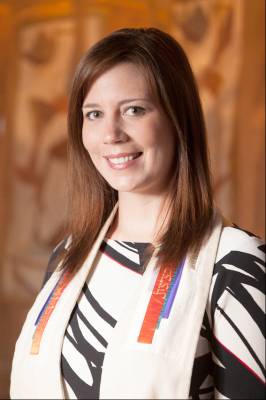 High school wasn’t great for me. I functioned at the periphery of social groups, laying low and laughing at jokes made at my expense so as not to be excommunicated into social oblivion. The weekend I left for college, I never once second guessed my decision until the moment my parents said goodbye and drove off. Watching that van pull away, it suddenly hit me that I was fully alone. I was 1,200 miles away from anyone who knew me. Every worst-case scenario flooded my brain in that instant. What if it were worse than high school? What if I didn’t find any friends or a group of friends? What if I failed my classes? What if none of the clubs wanted me? I froze. I wanted nothing more than to return to the familiar — to go back home. I must have stood there looking shell-shocked for a solid five minutes before a kind orientation leader coaxed me out of my stupor to some ice-breakers and what turned out to be the start of a fulfilling college experience.
High school wasn’t great for me. I functioned at the periphery of social groups, laying low and laughing at jokes made at my expense so as not to be excommunicated into social oblivion. The weekend I left for college, I never once second guessed my decision until the moment my parents said goodbye and drove off. Watching that van pull away, it suddenly hit me that I was fully alone. I was 1,200 miles away from anyone who knew me. Every worst-case scenario flooded my brain in that instant. What if it were worse than high school? What if I didn’t find any friends or a group of friends? What if I failed my classes? What if none of the clubs wanted me? I froze. I wanted nothing more than to return to the familiar — to go back home. I must have stood there looking shell-shocked for a solid five minutes before a kind orientation leader coaxed me out of my stupor to some ice-breakers and what turned out to be the start of a fulfilling college experience.
How many of us have experienced that kind of shutdown when facing the unknown when we cannot imagine something better because we are terrified of something worse?
It’s hard not to internalize the trials and tribulations that beat us down when we break out of the familiar. We feel an exhaustion from our negative experiences that causes us to stop thinking about the possibility that something could improve. For our ancestors who had been beaten down by generations of slavery, even entertaining the possibility of an expanded world seemed impossible. After God told Moses that the people would be freed, Moses reported this amazing news to the people only to be met with skepticism:
Moses spoke thus to the children of Israel, but they did not listen to Moses because of their kotzer ruach and because of their hard labor. (Exodus 6:9)
They didn’t listen to Moses because of their shortness of ruach, “spirit” and their hard labor. I can understand their hard labor as a mental block, the idea that they were too engrossed in their work to pause from it and hear the message. But how does their shortness of ruach prevent them from hearing the news that will transform their reality?
Kotzer ruach can be translated as “shortness of breath,” with ruach describing the physical action of breathing. Rashi explains the problem in this way: “whoever is under stress, his wind and his breath are short, and he cannot take a deep breath” (Rashi on Exodus 6:9). Our ancestors were simply too winded from the hard work to listen to Moses.
But ruach has an additional layer of meaning — it can be translated as “spirit.” It’s the idea that our breath is what animates us. It holds within some essence beyond just air that enables life. We even speak of the ruach of God. Most interpreters aside from Rashi think that there’s something to this spiritual element of ruach that factors into the Israelites’ inability to hear — that they had a “shortness of spirit” not just a shortness of breath.
As Sforno says, “It did not appear believable to their present state of mind … their heart could not assimilate such a promise” (Sforno on Exodus 6). The Israelites heard the promise, they just couldn’t believe it. They had known this reality of slavery for so long.
Ramban gets into the heads of the Israelites to share their fears. It’s not because they didn't believe God. They were scared out of their minds that something would go wrong with the plan for freedom. Remember how Pharaoh tried to have Moses killed and that failed? What if that’s true in reverse? What if we think we’re rid of Pharaoh but he comes back? (See Ramban on Exodus 6:9).
Fear of the unknown spins the Israelites into paralysis. They keep their own world small because they are too traumatized to imagine anything else. And the idea of trying seems like more trouble than it’s worth. At a certain point, it’s not the situation that limits them. They limit themselves. Their shortened spirits make their world shrink.
Sadly, slavery and its degrading and dehumanizing effects still exist in our world. While many of us do not face slavery, all of us experience some kind of kotzer ruach. We let the familiarity with what we know (whether it’s good or not) prevent us from asking what else is possible. We let the world at-large shrink our own.
The challenge for us is to ask, what are we not hearing because of our own kotzer ruach — because of our own shortness of spirit? What have we internalized so intensely that it renders us incapable of hearing anything but what’s not possible? What are we doing to oppress ourselves?
When we can tune in and ask ourselves that question honestly — not with judgment or anger but with simple curiosity — then we can ask ourselves what it would take to transform our kotzer ruach into an orech ruach — an "expansion of spirit." Then, perhaps our spiritual outlook can be a tool not for limiting our world, but for expanding it.
Rabbi Sarah Bassin is the associate rabbi at Temple Emanuel of Beverly Hills, in Beverly Hills, CA and former executive director and board member of NewGround: A Muslim-Jewish Partnership for Change.
 What Rabbi Bassin describes so well as “shortness of spirit,” seems akin to the concept of spiritual inertia that comes up again and again in Parashat Va-eira. A passage in A Passover Haggadah,1 prepared by the Central Conference of American Rabbis, captures this inertia:
What Rabbi Bassin describes so well as “shortness of spirit,” seems akin to the concept of spiritual inertia that comes up again and again in Parashat Va-eira. A passage in A Passover Haggadah,1 prepared by the Central Conference of American Rabbis, captures this inertia:
When the Israelites had grown accustomed to their tasks, when the Hebrews began to labor without complaint, then God knew it was time that they be liberated.
For the worst slavery of Egypt is when we learn to endure it! And God knew …
The Israelites are not the only ones to suffer from spiritual inertia. Pharaoh, too, hardened his heart during the first five plagues, after which it is said that God hardened Pharaoh’s heart. What does it mean that God hardened Pharaoh’s heart? Doesn’t God grant us all free will? I believe, following Rambam and others, that this hardening of his own heart became so ingrained in Pharaoh that he eventually lost the ability to do t’shuvah and change his ways.
We, too, can get stuck in a pattern of behavior that makes it hard to change. One small lie begets a second lie, and then a third and a fourth, until we’re no longer even sure where the truth lies.
What is the antidote to this spiritual inertia? The answer can be found in last week’s parashah. When Moses asks for God’s Name, God responds that it is “Ehyeh-Asher- Ehyeh,” which Rabbi Samson Raphael Hirsch2 translates as “I shall be that which I wish to be” (Exodus 3:14). What defines God is God’s ability to change the dynamics of our lives; we need only attach ourselves to God’s dynamism.
To paraphrase Sir Isaac Newton, “A body in slavery will remain in slavery.” But a body politic that attaches itself to a liberating God can break the bonds of spiritual inertia and move forward towards freedom.
- A Passover Haggadah: The New Union Haggadah, Rabbi Herbert Bronstein, ed., Leonard Baskin, illus. [NY: CCAR, 1991] p. 43
- The Pentateuch, Translation of the text and excerpts from the commentary of Samson Raphael Hirsch [NY: Judaica Press, 1997], p. 222
Rabbi Jeffrey Ableser will retire next June after serving Congregation Beth El of Windsor, ON for 25 years.
Va-eira, Exodus 6:2-9:35
The Torah: A Modern Commentary, pp. 420-448; Revised Edition, pp. 379-400
The Torah: A Women's Commentary, pp. 331-354
Haftarah, Ezekiel 28:25-29:21
The Torah: A Modern Commentary, pp. 696-99; Revised Edition, pp. 401-04
Explore Jewish Life and Get Inspired
Subscribe for Emails

